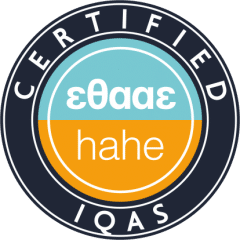Course Tutors
Upon completing the course, students should have acquired:
- A basic understanding of the concept of law, legal sources, and the hierarchy of rules, as well as the concept of Information Law and its main applications in libraries, archives, and museums.
- Basic knowledge of the differing positions and interests of the individuals involved in the operation of libraries, archives, and museums (entities, subjects, users, beneficiaries) and the tools for weighing conflicts that arise in these contexts.
- Basic knowledge of intellectual property rights, including the subject, object, and scope of protection, as well as the penalties associated with infringements.
- A foundational understanding of the constitutional freedoms protection system as applied in libraries, archives, and museums.
- Basic knowledge of the personal data protection system, the new General Data Protection Regulation (GDPR), the concept of data processing, and the principles supporting lawful data processing.
The ultimate goal of the course is to familiarize students with the law, introduce them to legal reasoning and classification, and develop their ability to understand how legal systems operate in practice, with a focus on libraries, archives, and museums.
Course Outline



